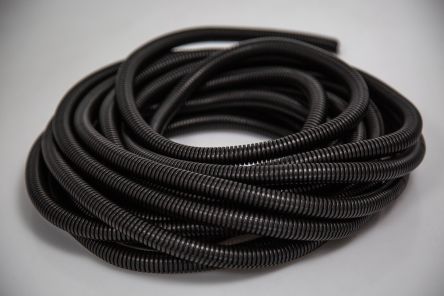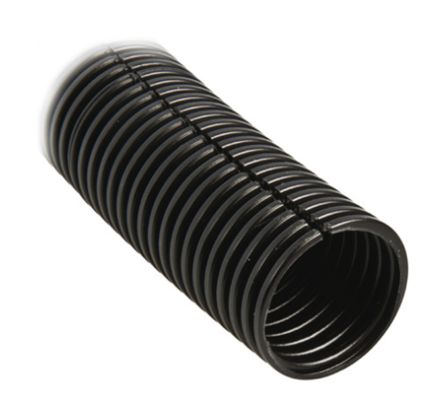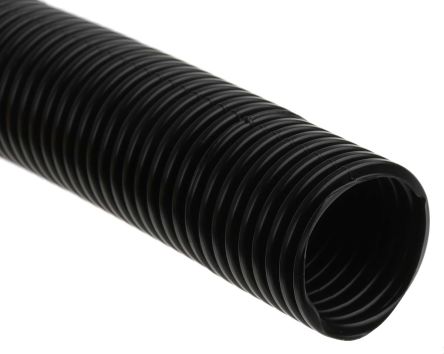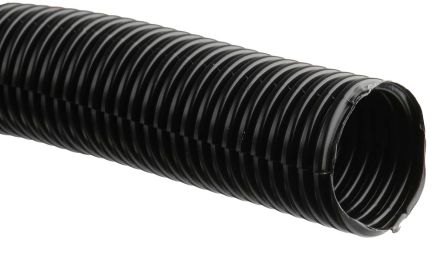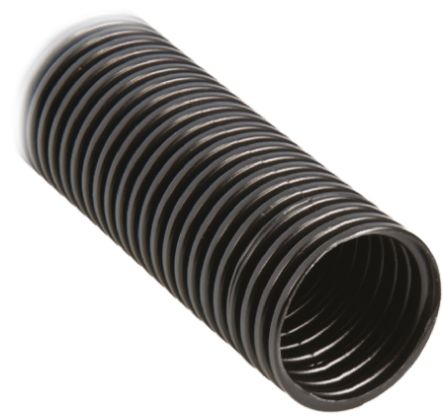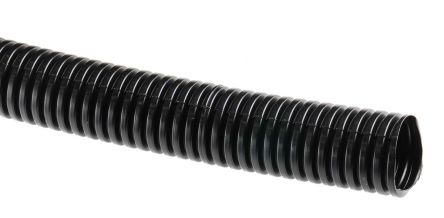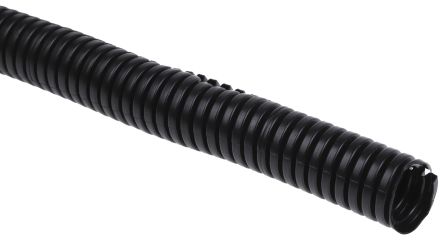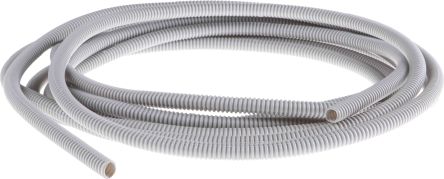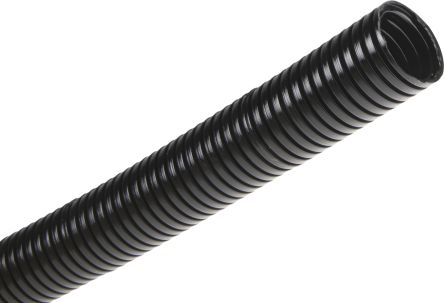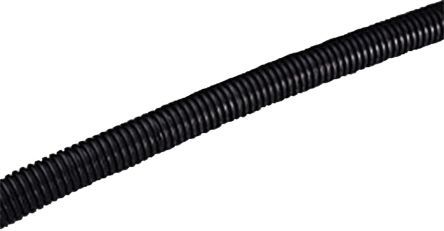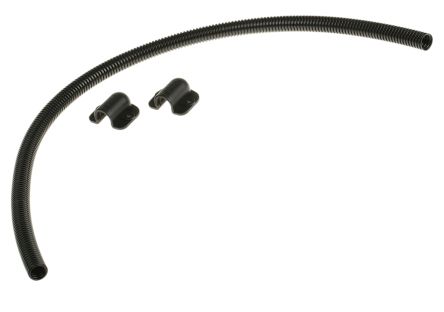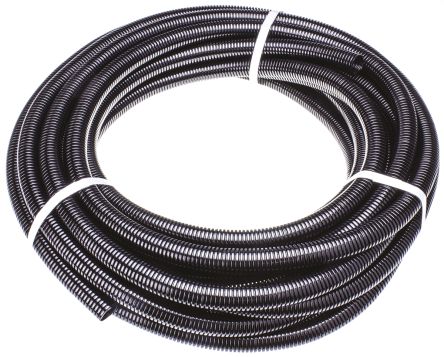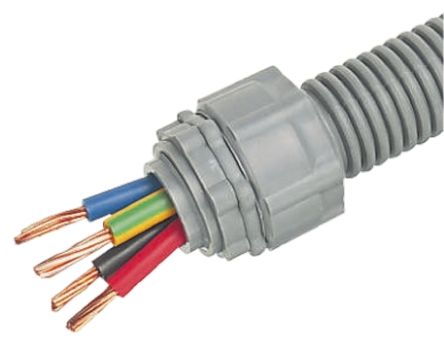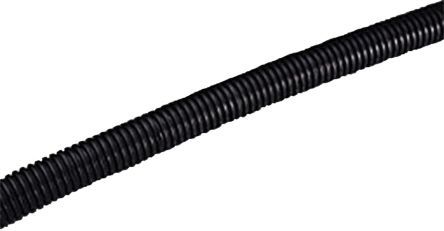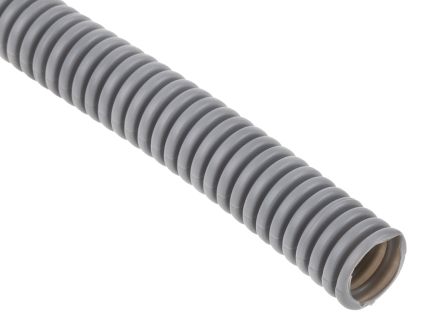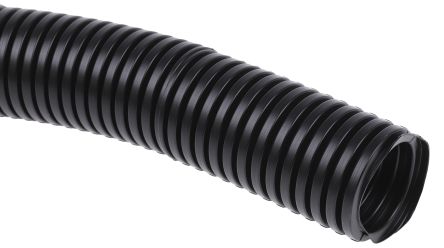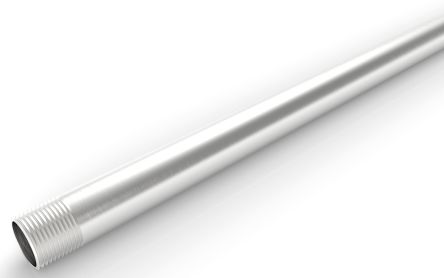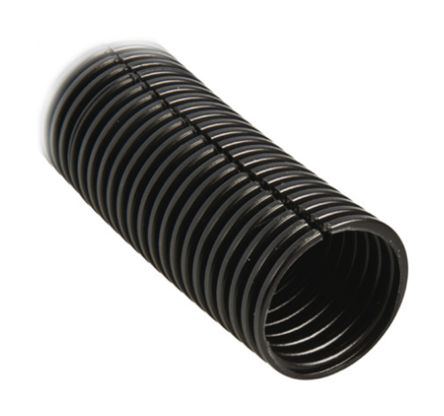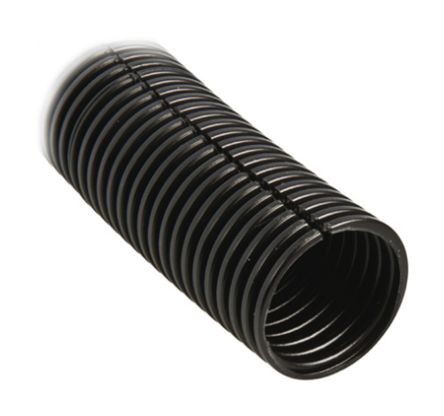- Automation & Control Gear
- Cables & Wires
- Enclosures & Server Racks
- Fuses & Circuit Breakers
- HVAC, Fans & Thermal Management
- Lighting
- Relays & Signal Conditioning
- Switches
- Batteries & Chargers
- Connectors
- Displays & Optoelectronics
- ESD Control, Cleanroom & PCB Prototyping
- Passive Components
- Power Supplies & Transformers
- Raspberry Pi, Arduino, ROCK, STEM Education & Development Tools
- Semiconductors
Conduit
Electrical conduits are tubings used to protect and guide electrical wires. They protect exposed wires in open areas, underground, or inside walls. They are essential components in modern electrical infrastructure, providing a safe and efficient way to route and protect wiring, as well as ensure the integrity and safety of electrical systems in various environments. Outdoor electrical conduits, for instance, are designed to withstand weather elements like rain and UV exposure, while industrial electrical cable conduits used in manufacturing facilities must withstand harsh conditions with plenty of vibration and potentially hazardous materials.
Electrical conduits are available in various sizes denoted by nominal diameter, interior and outer diameter measurements, and commonly measured in metres, these electrical cable conduits feature specific thread sizes for connections and can be found in different colours for easy identification. These are the typical specifications you can choose from:
- Nominal Diameter: Ranges from 3mm to 75mm
- Outer Diameter: Ranges from 5.1mm to 79mm
- Interior Diameter: Ranges from 3mm to 70mm
- Colour: Available in black, blue, green, grey, metal, and white
- Length: Ranges from 30mm to 100mm
- Thread Size: Available in various sizes, including 1.1mm, M16, M25x1.5, and PG16
- Maximum Operating Temperature: Can withstand +60° Celsius to +600° Celsius
Different Types of Electrical Conduits
Some common acronyms and terms used when discussing different types of conduits include "rigid" and "flexible." The main types are:
- Electrical conduit
- Flexible electrical conduit
- Metal conduit
Specific Subtypes of Electrical Conduits
Electric conduits are made of plastic, steel, galvanised steel, nylon, PVC, PP, and steel spring wire. They are essential for protecting exposed wires in open areas, underground, or inside walls, ensuring the safety and reliability of electrical systems. Depending on the purpose, organisations can leverage various types of electrical conduits. The three categories mentioned above can be further divided into specific types of cable conduits, including:
- IMC (Intermediate Metal Conduit): IMC (Intermediate Metal Conduit) is a type of steel conduit known for its lighter weight compared to Rigid Metal Conduit (RMC). It is a threaded steel raceway that protects and routes electrical wires and cables.
- RMC (Rigid Metal Conduit): RMC (Rigid Metal Conduit) is one of the most durable types of electrical conduits, made of galvanised steel. It is known for its thick, heavy-wall design that offers superior durability. This wiring conduit protects electrical cables and conductors against physical and environmental damage.
- EMT (Electrical Metallic Tubing): EMT conduit is a thin metal tube that is easy to bend and twist using a cable conduit bender. It can be cut with a small or 12V reciprocating saw with a high TPI blade.
- FMC (Flexible Metal Conduit): The Flexible Metal Conduit has a spiral shape that allows it to flex over short distances. It is useful for adding conduits in tight spaces or around existing equipment. Additionally, this flexible cable conduit adapts easily to irregular contours and environments, making it an ideal solution for dynamic or movable machinery where rigid conduits cannot be used.
- LFMC (Liquid-Tight Flexible Metal Conduit): LFMC (Liquid-Tight Flexible Metal Conduit) features a waterproof plastic conduit coating, making it suitable for use in both exposed and concealed locations where protection from liquids, vapours, or solids is required.
- ENT (Electrical Non Metallic Tubing): ENT (Electrical Non Metallic Tubing) is a flexible PVC conduit tubing that can be used in place of EMT and run behind walls and encased in concrete. It has a two-hour fire resistance rating but is not UV-resistant.
- Rigid PVC Conduit: The Rigid PVC Conduit is heated and bent before use. It is watertight when properly installed and has the same properties as a water pipe as electrical conduit.
- Galvanised Iron (GI) Conduit: Galvanised Iron (GI) conduit is a type of electrical conduit made from a mixture of iron and zinc, with a protective coating of galvanisation. It is commonly used in electrical installations to protect and route electrical wiring.
Advantages of Electrical Conduits
- Safe and reliable wiring: Wiring conduits provide a safe and secure path for electrical wires. It encloses and protects the wires from damage that occurs if they are left exposed.
- Conveniently used in humid places: Electrical cable conduits are made of materials like PVC that are resistant to moisture and humidity. Good for use in damp or humid environments, such as bathrooms and kitchens.
- **Long-term usage: **Conduits are durable, ideal for use in long-term installations. It can withstand the wear and tear of daily use over time.
- Easy to install: Cable conduits are relatively easy to install. They can be cut to size, while flexible cable conduits can be bent to fit around corners, a versatile choice for a wide range of applications.
- Cost-effective: Conduits are widely available, affordable, and good for both residential and commercial installations.
Industrial Applications of Electrical Conduits
Electrical conduit fittings are widely used in various industrial settings, including manufacturing plants, power generation facilities, and construction sites. They provide robust protection for electrical wiring against harsh environmental conditions, mechanical damage, and electromagnetic interference.
In addition to their primary role in safeguarding wiring, electrical conduits are often used together with junction boxes to create an enclosed area where wires can be safely connected, terminated and inspected for maintenance.
Examples of industrial applications for electrical cable conduits include:
- Routing power to heavy machinery
- Providing energy infrastructure for data centres
- Ensuring safe electrical systems in hazardous areas
Ordering and Delivery Information: Electrical Conduits
RS is a trusted distributor of electrical conduits from renowned brands such as RS PRO, Adaptaflex, Flexicon, and PMA. From flexible cable conduits to metal, EMT, PVC, plastic, steel conduits and more, we provide a comprehensive range of conduit solutions tailored to diverse industrial needs. Our other offerings include complementary products like junction boxes and cable trunking to protect your electrical installations.
To order electrical conduits from RS, simply browse our online platform to find the right cable conduit for your needs. You can filter according to categories like material, diameter, conduit types, IP-rating, colour and more. RS offers a range of delivery options across Australia. For more details on our delivery services and fees, please refer to our Delivery Page.
Popular Searches
Related links
- PMA Conduit Fittings
- Kopex Flexible Conduit Stainless Steel, Metal
- Adaptaflex Flexible Conduit PVC, White
- Adaptaflex Flexible Conduit Galvanised Steel, Metal
- RS PRO Flexible Conduit Plastic, Black
- RS PRO Flexible 32mm Nominal Diameter Black
- RS PRO Flexible Conduit Plastic, Black
- Flexicon Flexible Conduit Galvanised Steel, Metal
